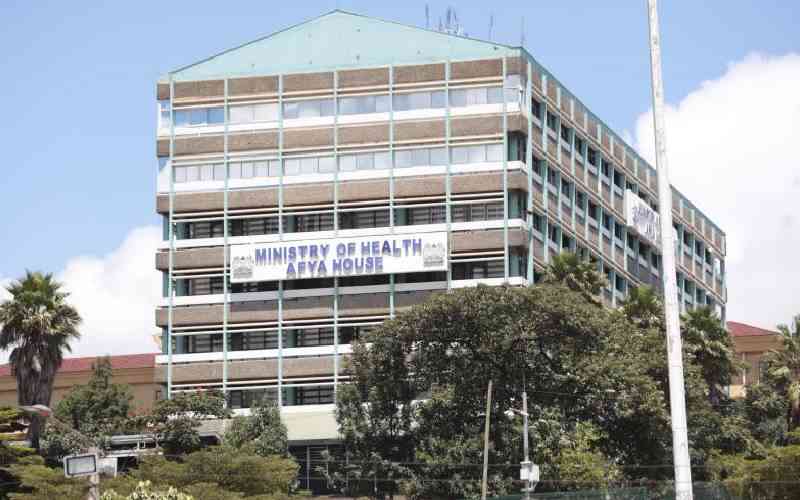
Nairobi Governor Johnson Sakaja is under scrutiny for overseeing the registration of a private entity to manage garbage collection in the city.
In what could be a blatant case of conflict of interest, Sakaja has established an entity to manage garbage collection, drawing mixed reactions.
The plan came to light after a company registration document revealed that a company named ‘Nairobi Green’ had been registered to oversee the management of solid waste.
According to the document, the company will be owned by Nairobi County. However, what has raised eyebrows are names of the shareholders, all of whom are from the Executive.
The shareholders, according to a document from the Registrar of Companies, consist of current officeholders in the Executive. Listed as shareholders are the CECM for Environment and the CECM for Finance, each holding equal shares.
Others include the County Secretary as a shareholder, the Chief Officer for Environment as a Director, and the Chief Officer for Finance and Economic Planning as a Director.
However, Embakasi Central MP Benjamin Gathiru, while reacting to the plan, said this might not be the best option, citing that the names listed as shareholders speak volumes.
The MP added that before making such a move, Governor Sakaja ought to have consulted other leaders, such as MPs, noting that they are rarely consulted on key decisions affecting Nairobi residents.
“That move is aimed at enriching a few individuals; instead, the county ought to be utilising the youths in every ward through their CBOs,” the MP noted.
Adding that: “Leadership should involve everyone, but we (Nairobi MPs) will sit down and deliberate on the matter to see how best to handle the mess.”
But Sakaja has defended his move, citing that it is a way to deal with garbage cartels and that the firm will operate like the Nairobi Water and Sewerage Company.
The governor, while confirming that the names of the shareholders of the company were genuine, noted that counties are corporate entities and can own shares.
“Business registration services recognise individuals, human beings, or companies who are also individuals. So the corporate entity recognises the Nairobi County Government, and then the CEC Finance, CEC Green Nairobi, Chief Officer,” he explained.
Sakaja added that the company will be paying suppliers directly since it will have a board with directors and assets.
“What we are able to do is to increase transparency at the time. Because that’s where there was a problem.”
Sakaja said for a long time, cartels have been profiting from the garbage business, adding that in about two years, the number of companies involved in garbage collection has been reduced from 68 to 10.
Nairobi South MCA Waithera Chege observed that the whole plan is flawed, citing legal procedure was not followed.
“He has not carried out any public participation. Sometimes Nairobi residents have no issue paying more, but they want to see the results. But since he took over, he has not shown willingness to deliver with a budget of Sh43 billion,” Waithera said.
She added that the plan had yet to be tabled in the Assembly as required, adding that registering the company required public participation so that people could agree or disagree with the registration.
“Even if he was to follow the law, if you put the names on that CR12, and then he does a reshuffle, does it mean he will be going to the Registrar of Companies to change the names?” Waithera posed.
She said, ideally, the names of the offices should appear on the document, not the names of office bearers, adding that the governor rushed to register the company because he had failed to manage public funds.
Kariobangi North representative Joel Munuve observed that this could be a scam in the making, regretting that it is a ploy to fully control a sector worth Sh1.8 billion.
Munuve said due process was not followed when registering the company and some quarters were unhappy that the matter is now public.
“They did not want the whole issue to be brought out that way. They wanted to sneak it into the Assembly,” said Munuve.
“It is wrong to say that the company will run like Nairobi Water and Sewerage Company because it is owned by the county 100 percent. Those listed as shareholders are his cronies,” he added.
Meanwhile, Umoja 1 representative Mark Mugambi Macharia said he supports the decision, citing that the county no longer has the capacity to pay garbage contractors.
“This is the way to go because, at the moment, a huge chunk of revenue goes to paying garbage contractors, leaving development with almost zero budget. To me, this is not privatising but turning it into a parastatal that will generate its own revenue,” Macharia said.
“In fact, at the moment, the sector is private because we are using private companies to collect garbage. Those opposing it are speaking from a point of unfamiliarity,” he added.
As this unfolds, the latest report by the Controller of Budget has raised some issues in relation to garbage collection in Nairobi.
According to the audit report for the year 2023/2024, a review of various payment vouchers regarding the hire of heavy equipment, plant, and machinery at Dandora Dumpsite for April 2023, totalling Sh72,897,000, revealed the following anomalies.
The report states, for instance, that contract agreement number NCC/ENV/ONT/077/2022-2023, signed by the contractor, indicated that it was signed on 18 April 2023.
However, an analysis of the payment schedules indicates that vehicles were already on-site and had billed the County Executive for hours worked from 17 April 2023, before the contract was signed.
“Records provided for audit indicated that billing was based on daily odometer-hour readings of the machines at the start of work and stop of work for two (2) daily shifts of eight hours each,” the report states.
Adding that, “It was observed that these machines worked non-stop per shift, casting doubt on the authenticity of the records, given that there were no downtimes recorded for refuelling or even the drivers taking a break at any point.”





